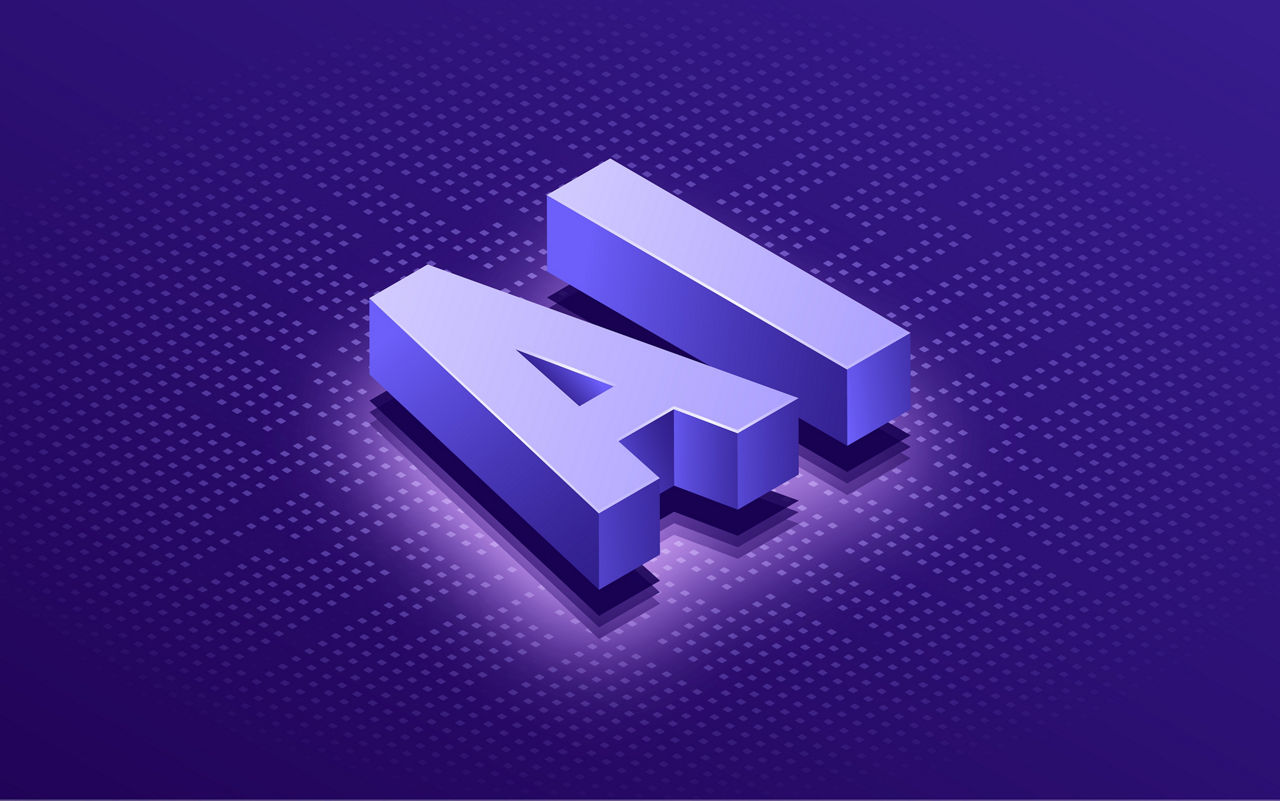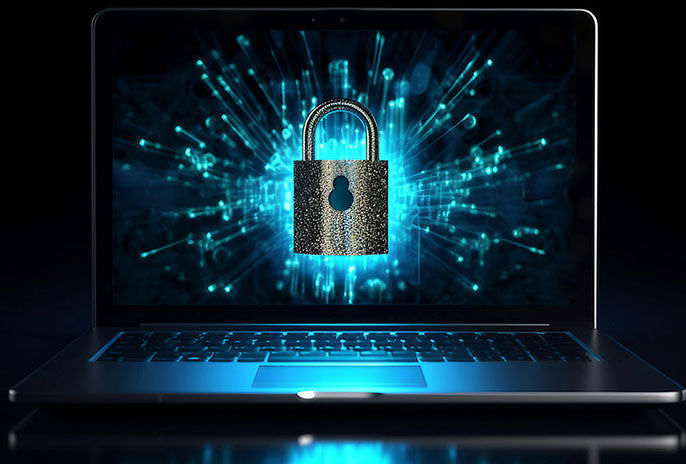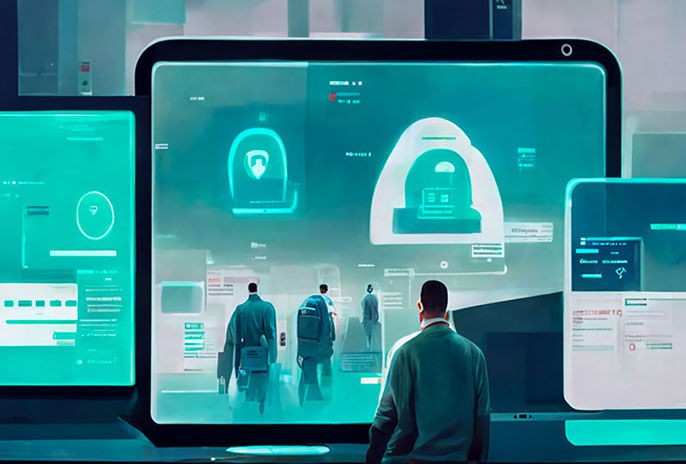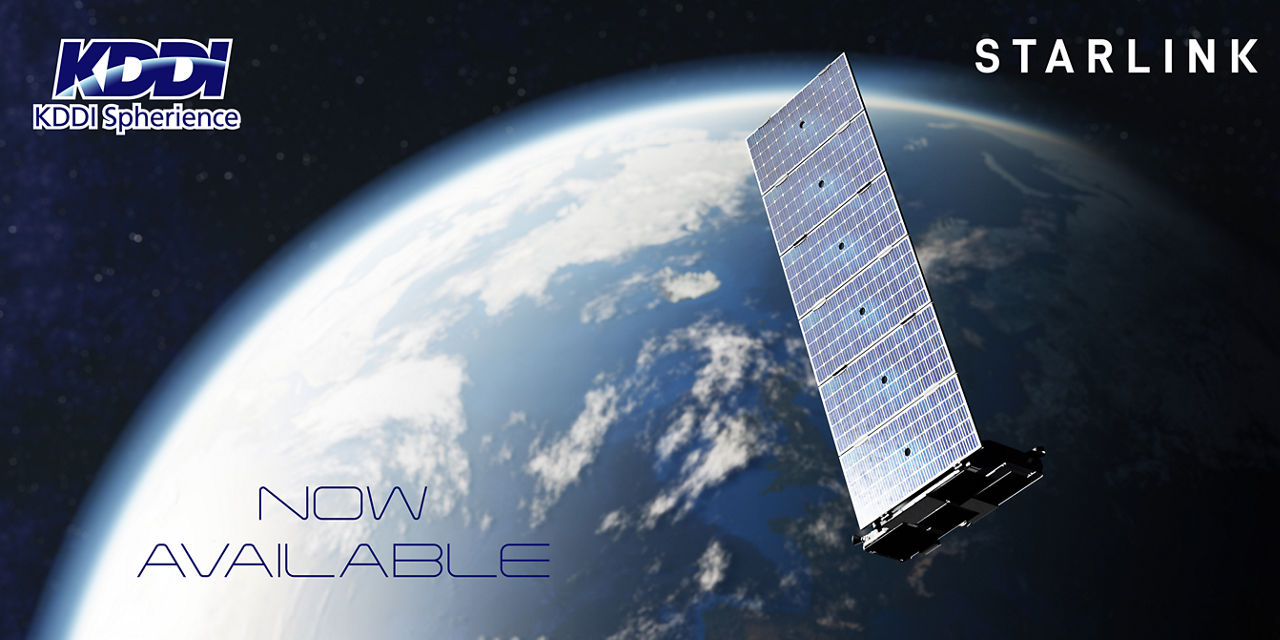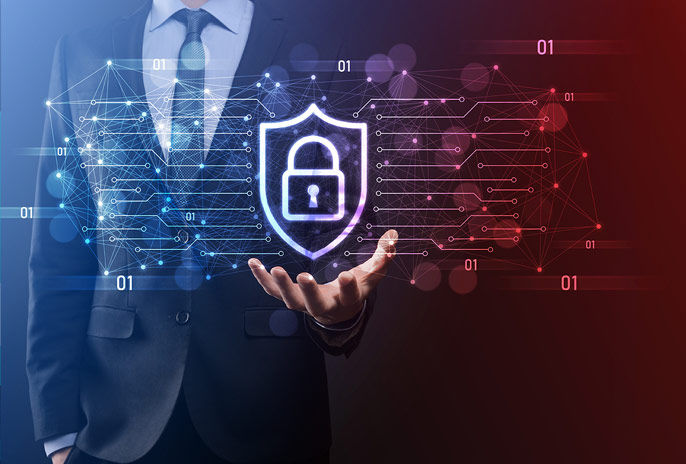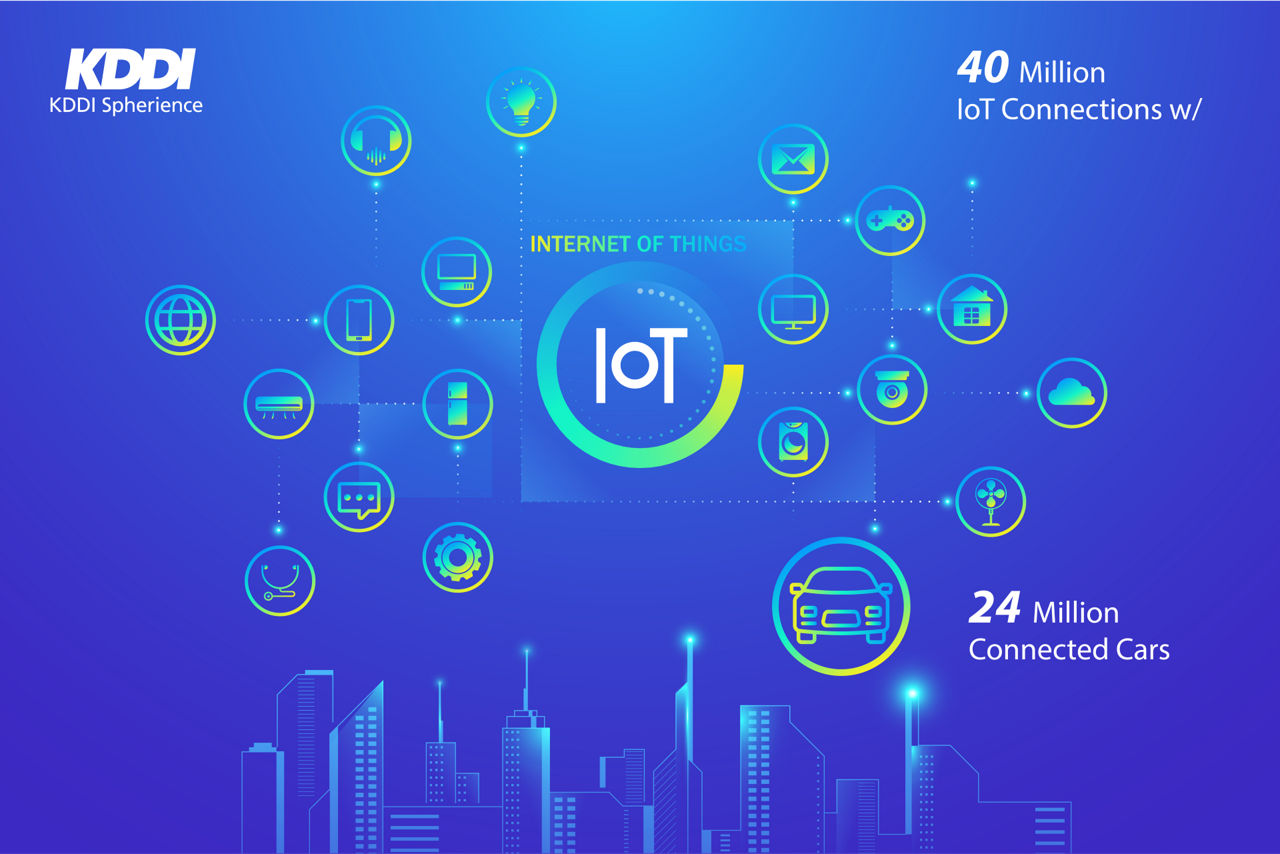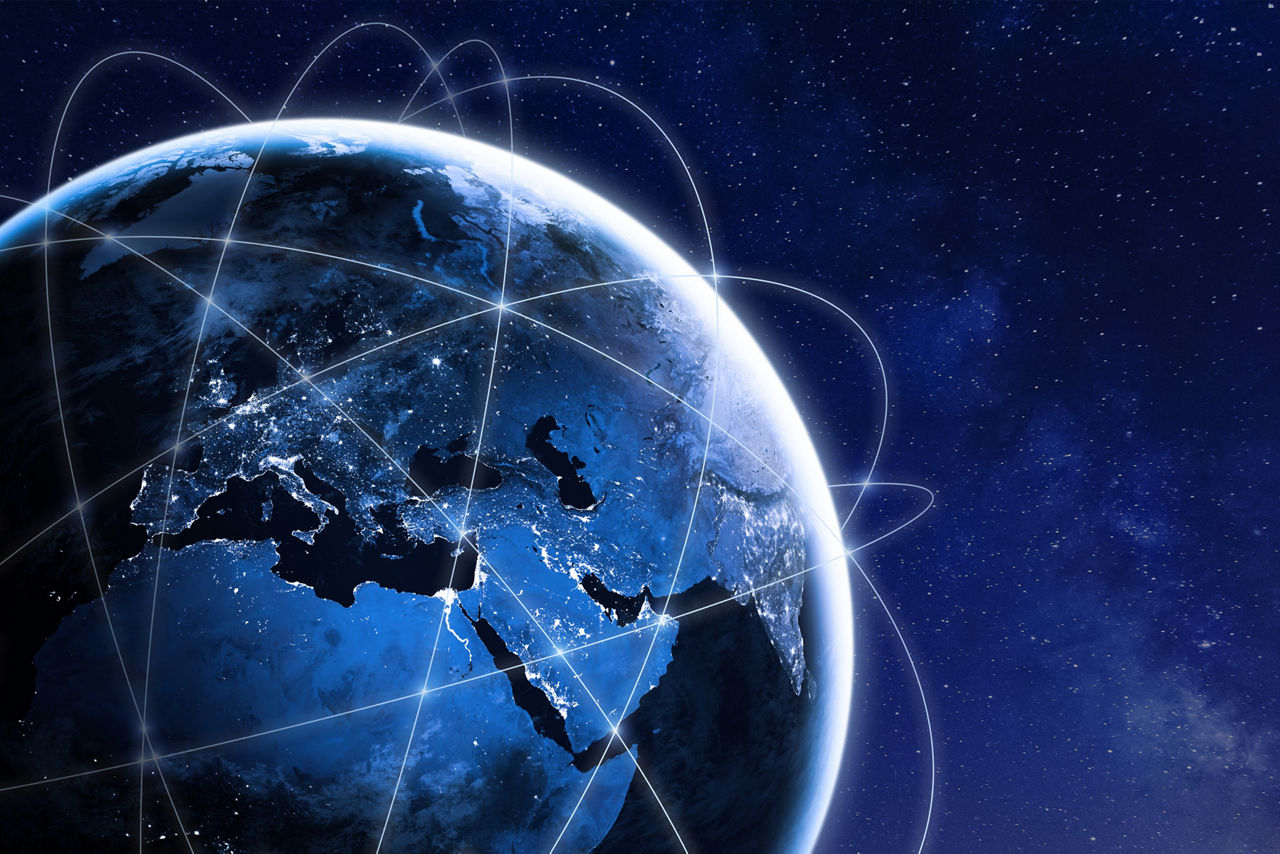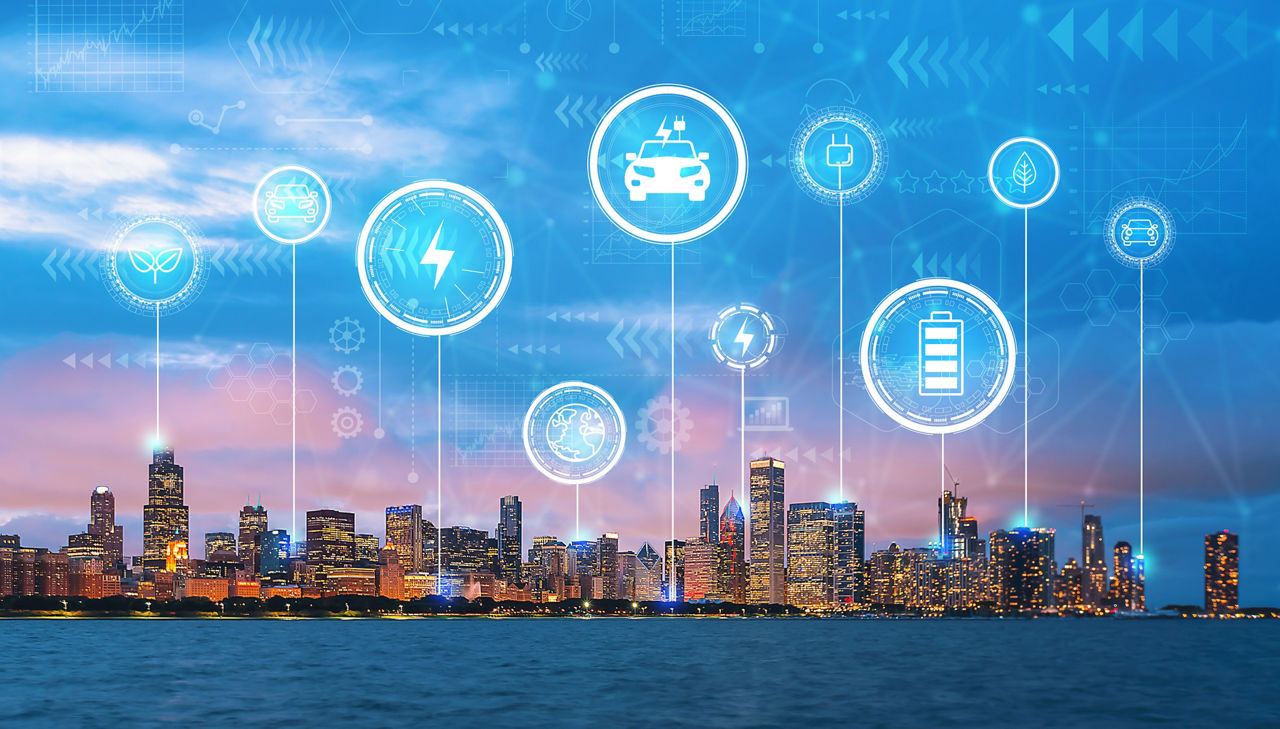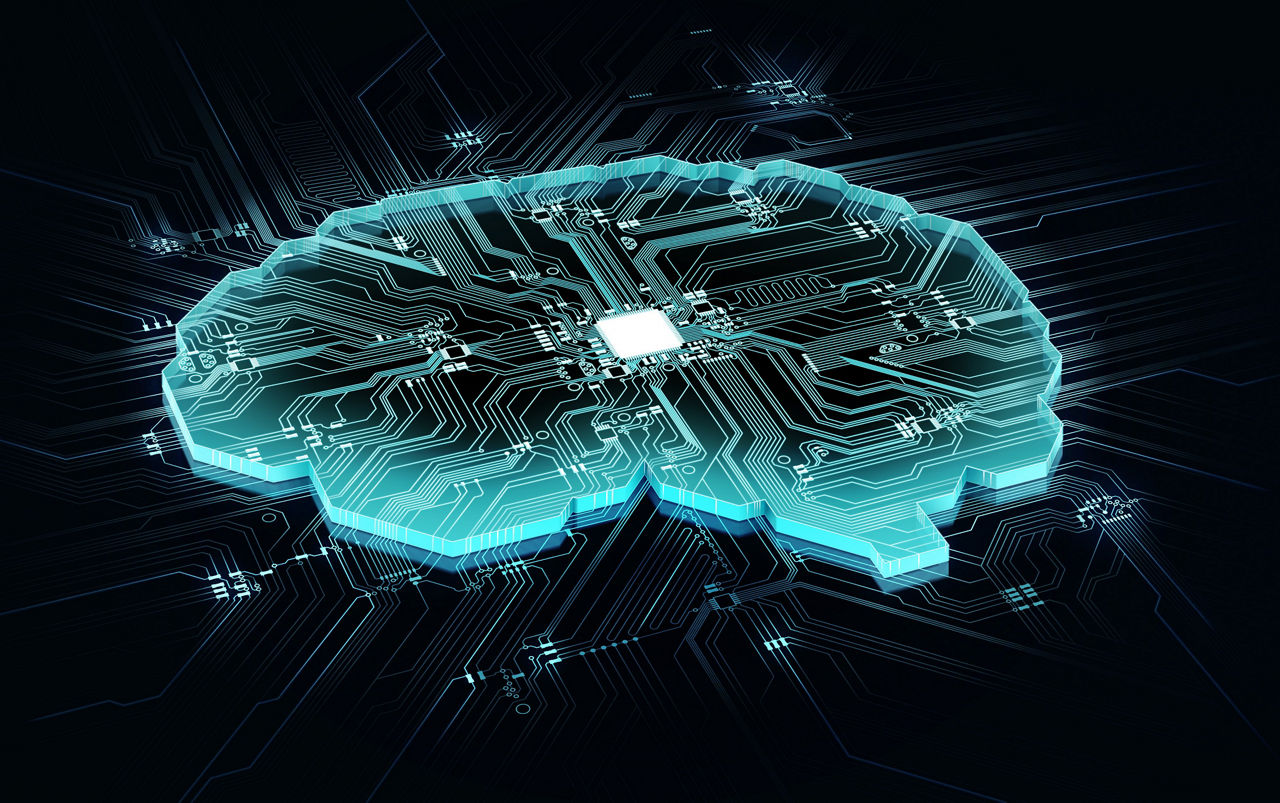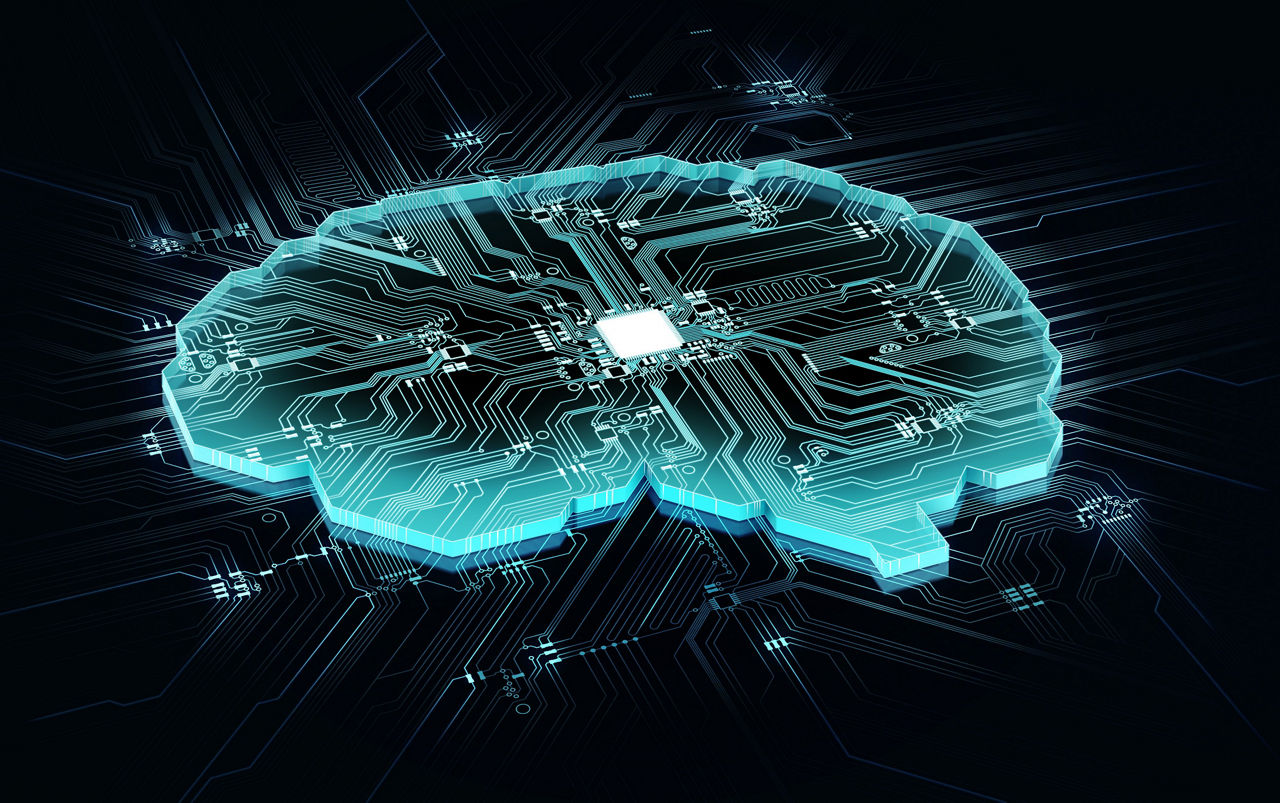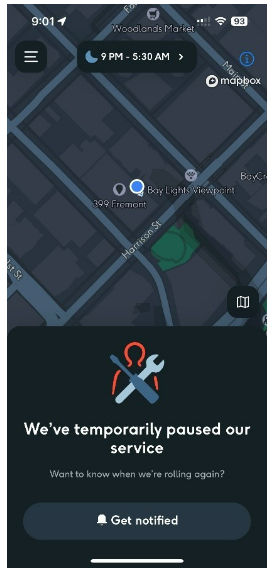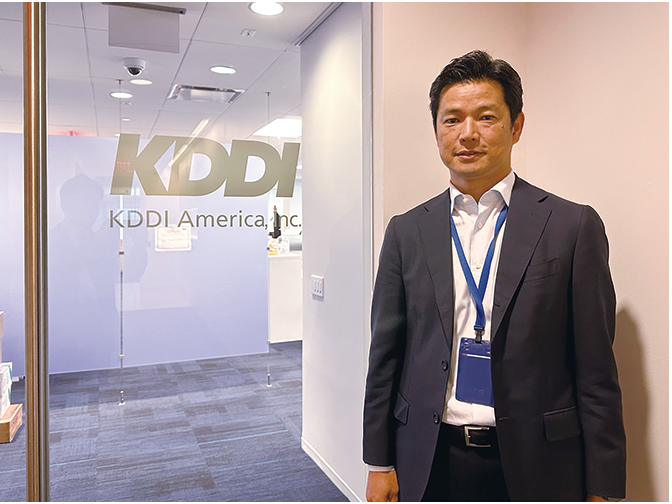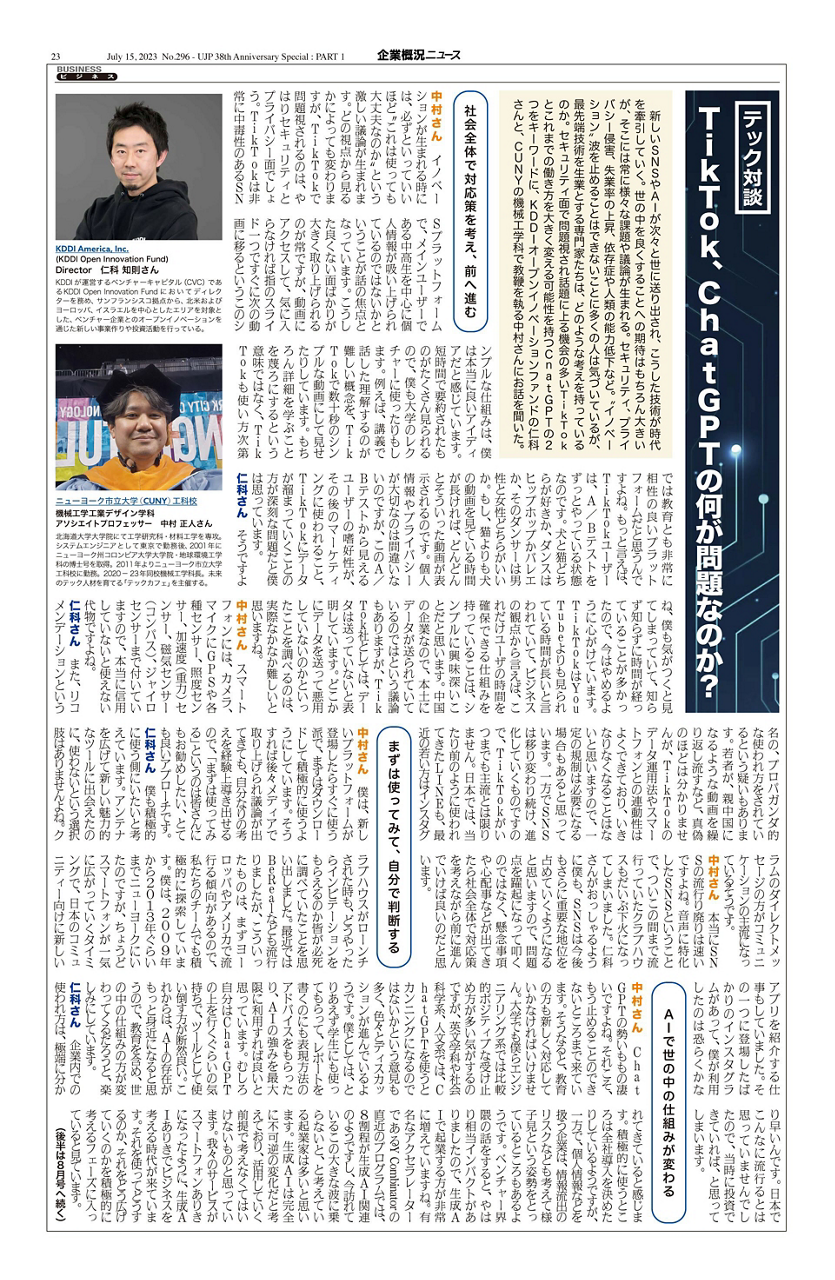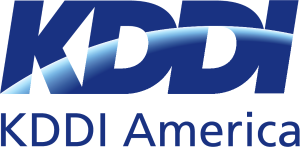Last month, we learned about the basics of ChatGPT and other generative AIs. This month, let’s learn about the interesting topics below!
● How to Properly Use ChatGPT and How It Can Be Dangerous
● Case Study: Workflow Using OpenAI
● Tips on Making Effective Prompts
Knowledge What is “Generative AI”? 【Part 2】
KDDI America
I. How to Properly Use ChatGPT and How It Can Be Dangerous
We can increase efficiency by applying ChatGPT on various types of tasks such as ones below:

However, it is not safe to implement ChatGPT into your daily workflow without knowing its proper use. It is crucial for everybody to be aware of the potential danger of ChatGPT.
How ChatGPT Can Be Dangerous
● Accuracy of Information:
ChatGPT provides answers based on training data, but that does not mean that provided answers are true. Sometimes, ChatGPT can provide answers that are not accurate, or not true at all.
● Protection of Private Information:
ChatGPT is a public service, therefore, you need to be extra careful when using confidential information.
● Use of copyrighted material:
Information given from ChatGPT might be part of copyrighted materials from somebody. It is important to use information with proper citation.
● User Agreement & Legal Agreement:
It is required for every user of ChatGPT to agree with ChatGPT’s user agreement. Be aware of what you are agreeing to. Depending on the industry you work for, you might need to be extra cautious when agreeing to the user agreement.
● Possible Biases and Ethical Issues:
ChatGPT generates answers based upon information from the training data, meaning it is likely to be affected by any biases in the original data. Without proper context and command, ChatGPT can give you unwanted answers.
【Summary】
● Be aware that there are chances of false information being provided from ChatGPT. Make sure to use multiple sources to ensure validity of answers being provided from ChatGPT.
● Avoid using any confidential information. Try to use information that is vague and avoid using information that is too specific.
● If you are not sure whether you can or cannot use ChatGPT in your daily work tasks, contact your legal department.
II. Case Study: Workflow Using OpenAI
ChatGPT is a service for consumers, therefore, we need more secure and trustworthy application for business uses. For example, Microsoft released their AI service called “Azure OpenAI” for business uses. This service has been offered using Microsoft’s cloud service, Azure, and ChatGPT gained its access starting from March 2023. By using AI services that are for business purposes, you can effectively implement AI into your daily work.

One of the realistic use cases can is a use for customer support center. AI can drastically increase support efficiency.


III. Tips on Making Effective Prompts
What is a Prompt?
We use the word “Prompt” when talking about ChatGPT as a “command” that a user gives to the AI. Prompts are given in the form of text to tell AI what to do.
For example, you can give prompts like below to ChatGPT:
"Tell me how to cook healthy meals"
"Tell me how to use this tool"
"How do you say “Hello” in Japanese?"
ChatGPT operates besed on prompts being given from the user. Knowing how to give proper prompts is crucial when generating seamless conversation with ChatGPT. By including information and guidance in your prompts can help AI to behave in a way that can give the best result for whatever you are wishing to achieve from that interaction with the AI.
Tips on Writing Prompts
When generating effective prompts, it is important how you write it. By giving ineffective prompts to the AI, it can hinder AI’s performance.
Create Prompts with Purpose in Mind!
● Give accurate commands
● If you have any examples of topics you are commanding about, share them with the AI
● Rather than giving a single complicated task, break it up into some simple tasks
● Allow ChatGPT to take its time to give you the exact answer you want
※Be aware of what you are trying to accomplish by asking things to the AI. Giving accurate prompts can lead to more accurate results.
Take Small Steps to Get the Answer
It is difficult to give complicated commands to the AI. It is also difficult for an AI to understand and execute any complicated prompts. Be patient and take small steps to reach the result that you are looking for.
Below, you can see some examples of good prompts and bad prompts:

Below, I asked similar questions to ChatGPT but with different levels of details:

- You can see how different ChatGPT behaved depending on how I asked questions. It is important for us to know exactly how to use ChatGPT in effective and proper way to get the best result. I am looking forward to see the future of AI and its surrounding technologies!
I will see you next month with more KDDI blogs!
KDDI America's parent company, KDDI Corp., started providing Microsoft's generative AI service, "Azure OpenAI Service," to their customers since September 5th, 2023.
Launch of Azure OpenAI Service is not being planned just yet, but we are always striving to support our customers with our offerings including cutting-edge digital innovation technologies. - KDDI America DX
KDDI America, Inc.
KDDI America is the US subsidiary of KDDI Corporation, a Fortune Global 500 company and is growing communications carrier with a proven track record in Japan and a longstanding reputation for quality and reliability. KDDI America provides a wide range of High Quality Services such as Communications, Data Centers and Solution Services throughout the world.
Inquiry for this service
If you have any questions or inquiries, please contact us by clicking on the following link : Inquiry Form
Writer / Interviewer

KDDI America
Kota Nagase
Marketing Associate
Joined KDDI America, Inc. in January 2023 right after graduating from the University of Houston with a Master's in Marketing. Loves working out, tennis, and fashion. Won a third place in Texas Tennis State Tournament back when he was in a highschool. Always on a look out for his favorite fashion pieces.
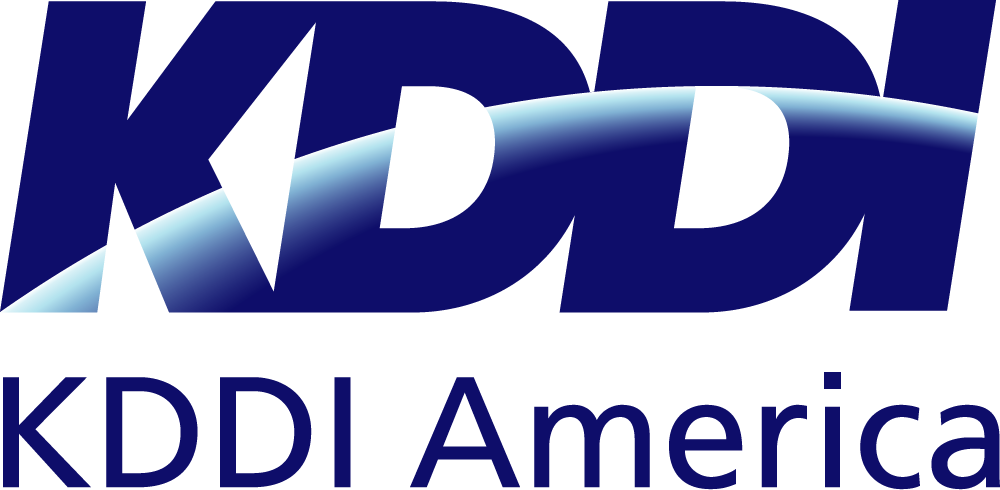





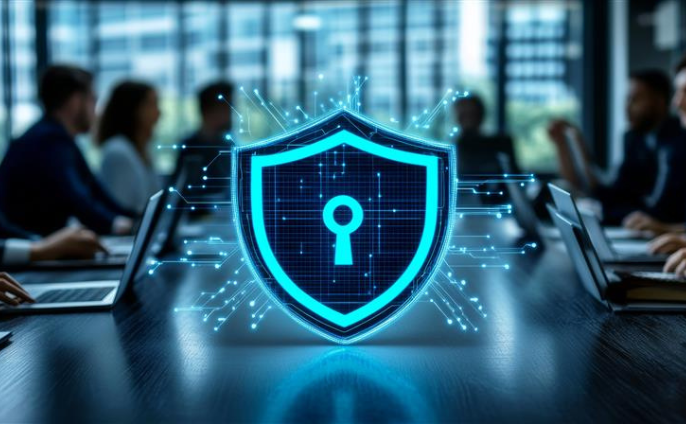

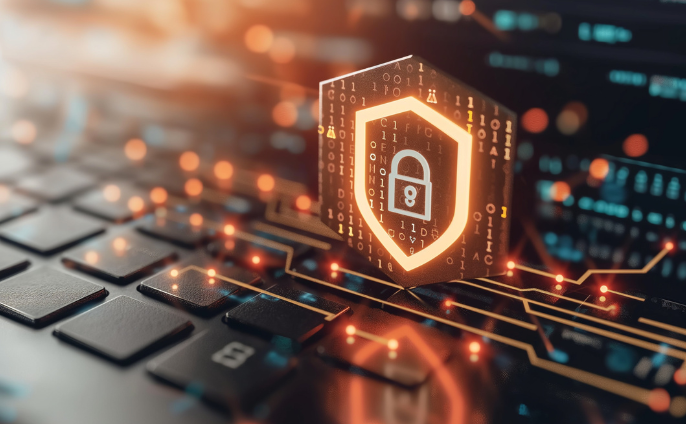
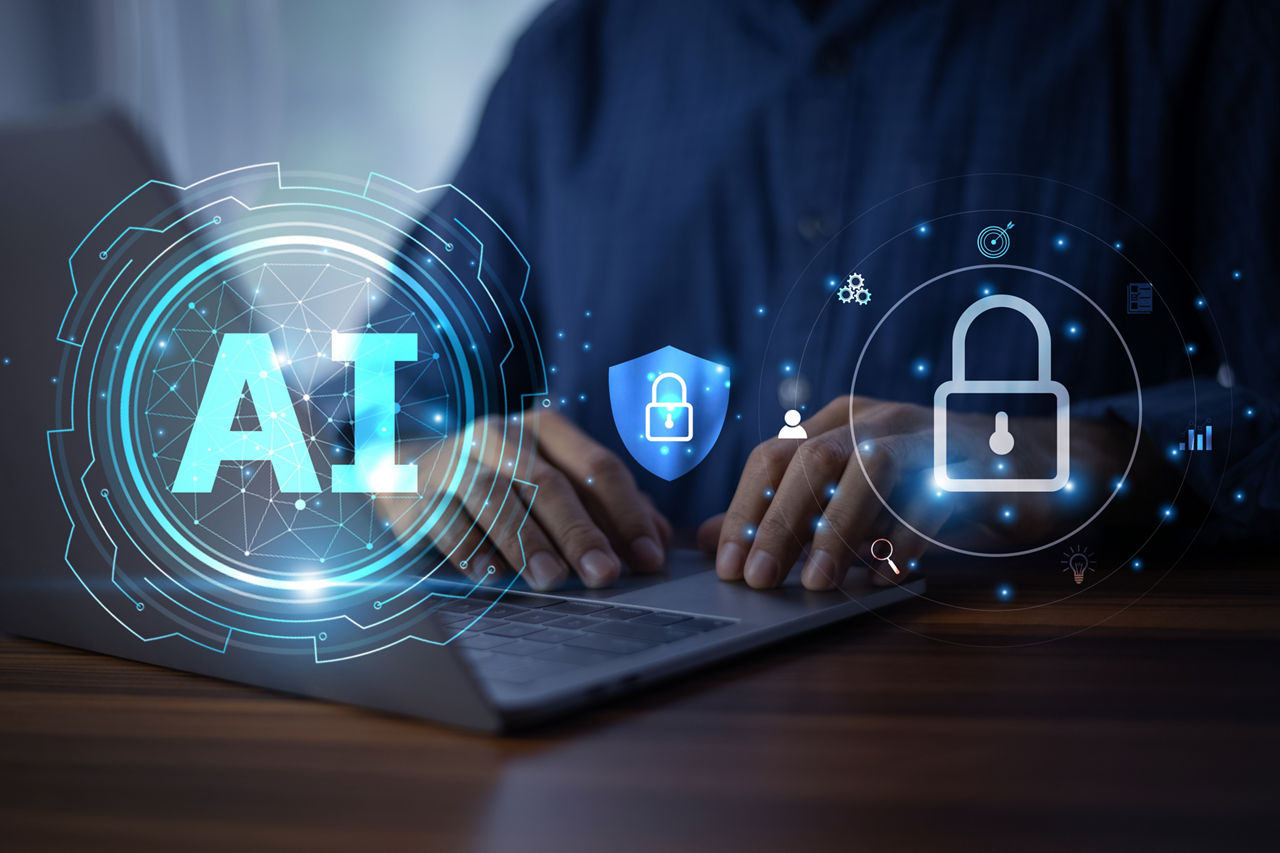
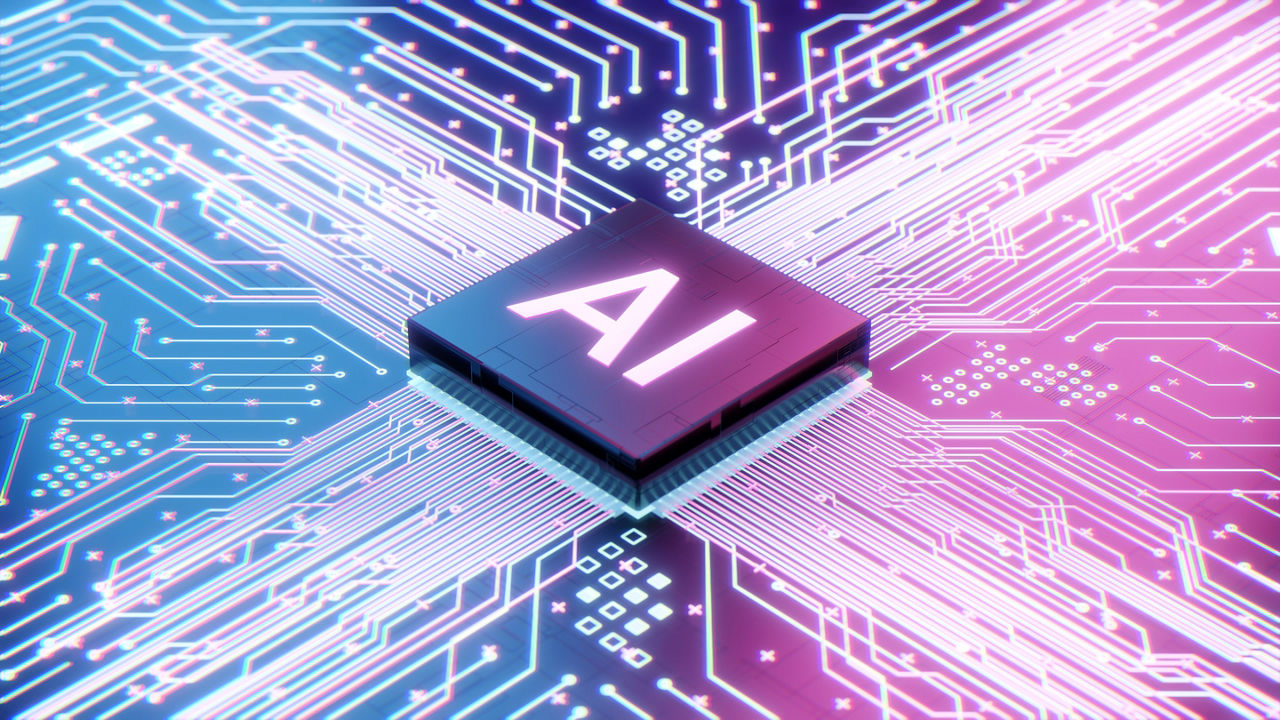













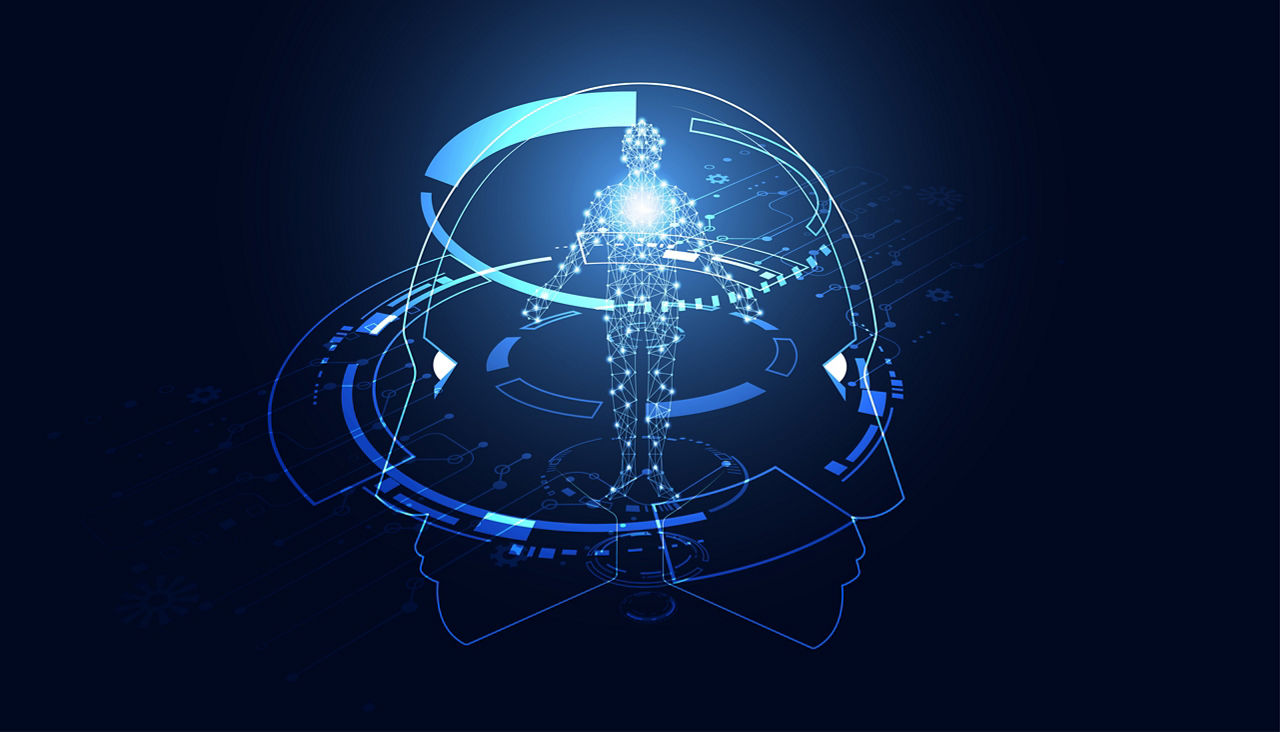
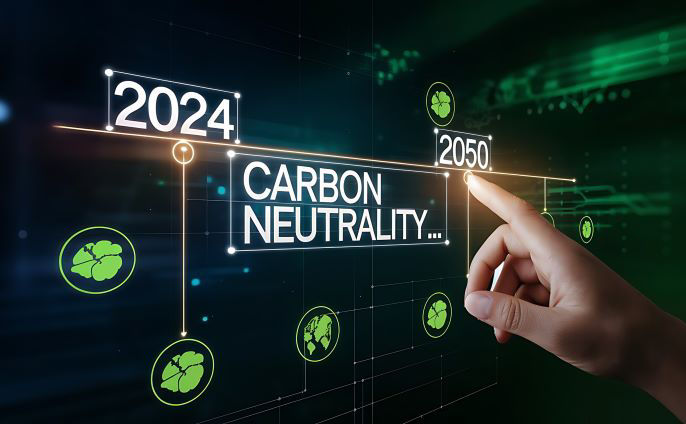



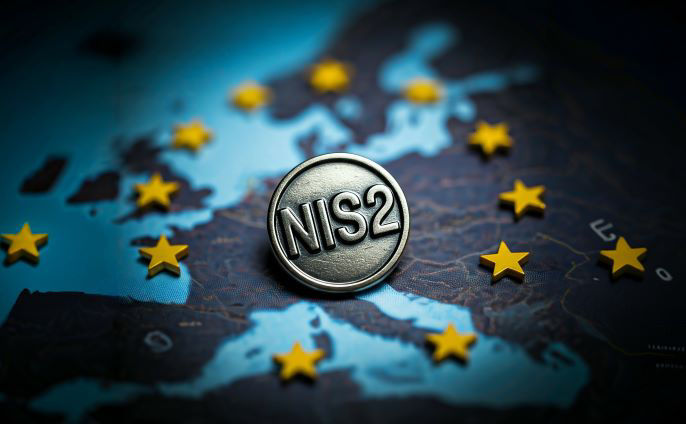
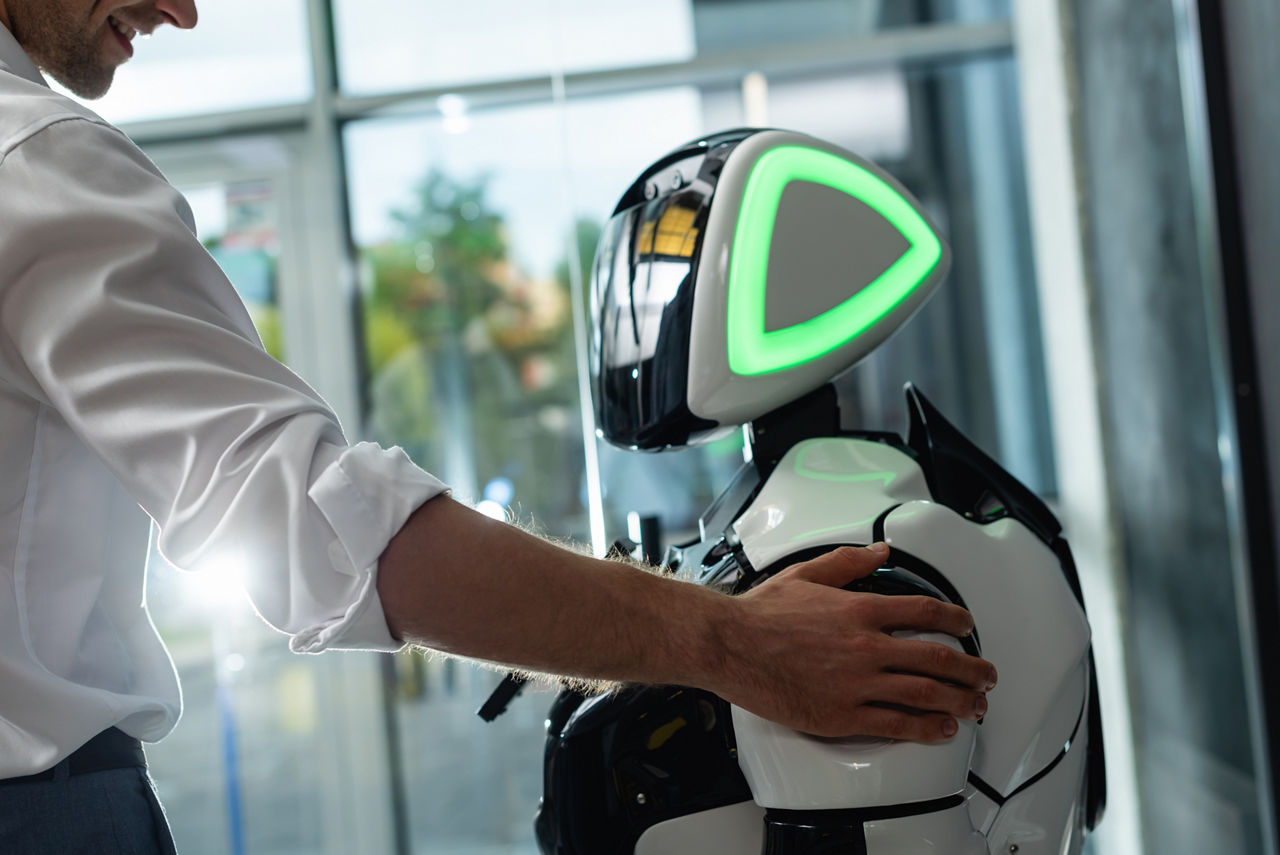
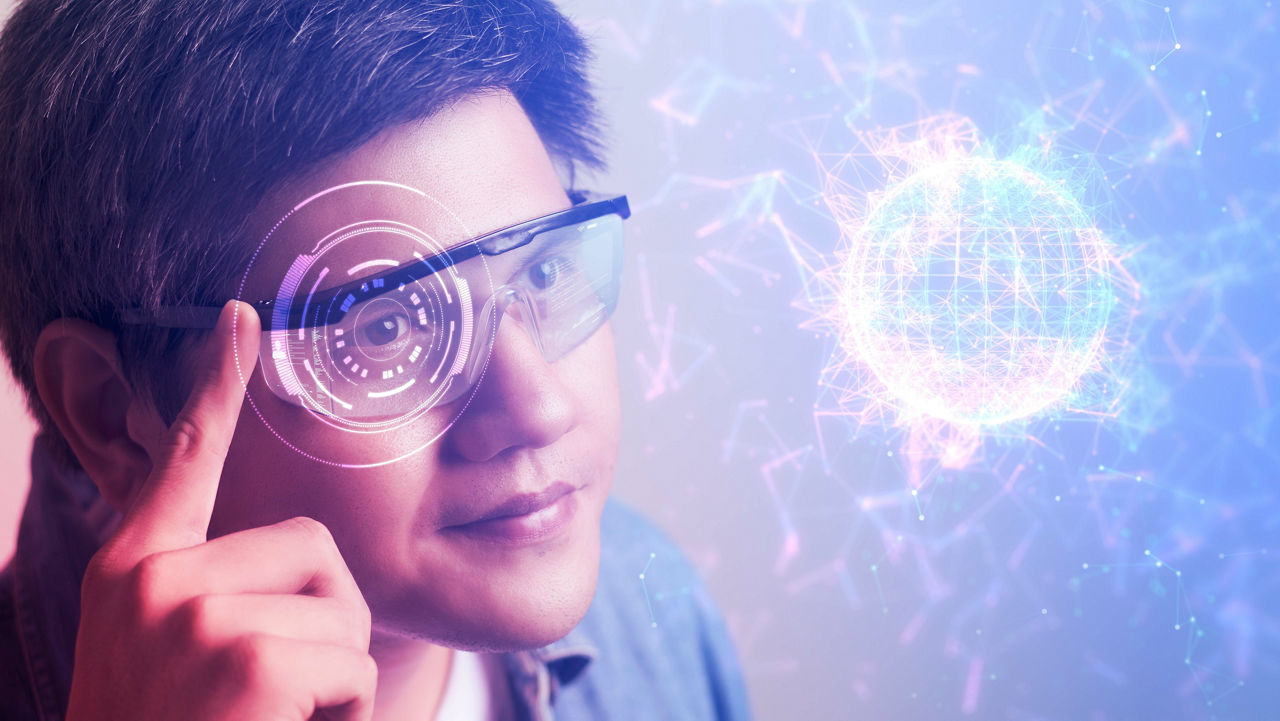






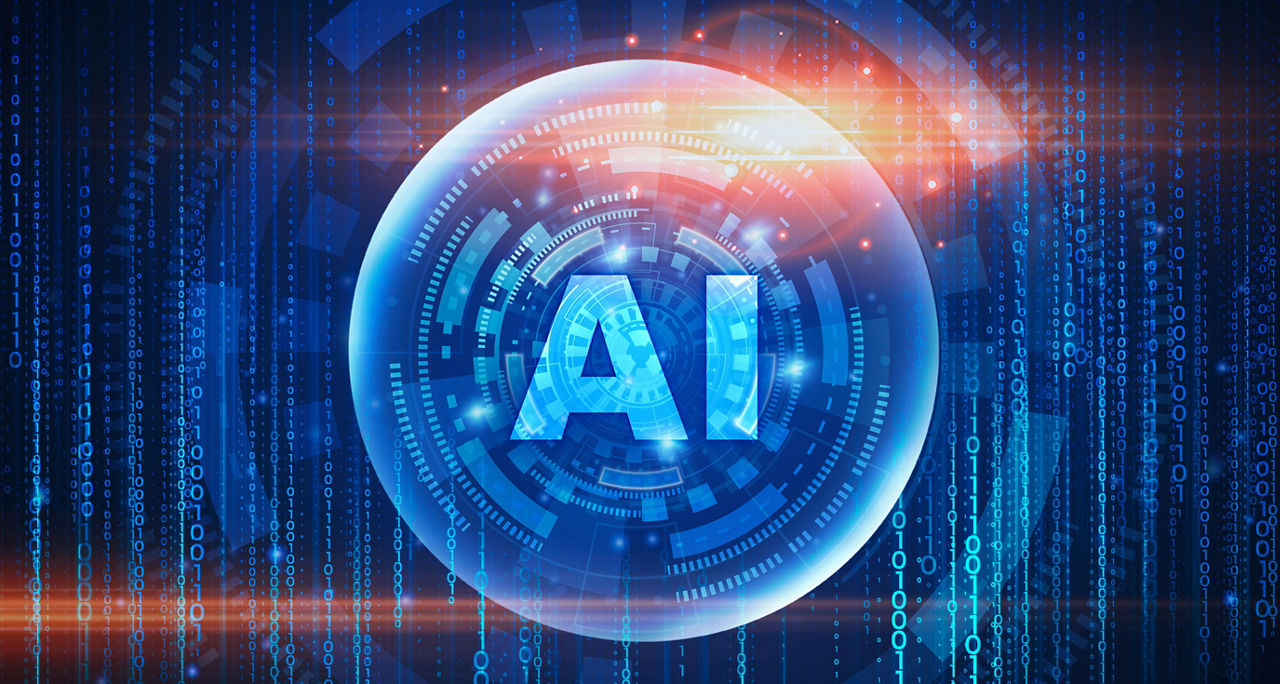
)




